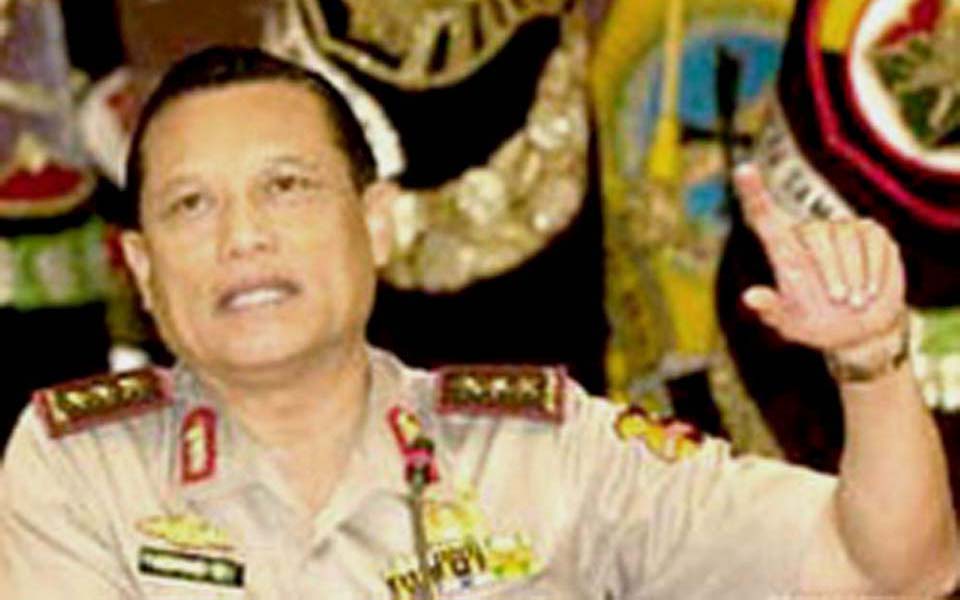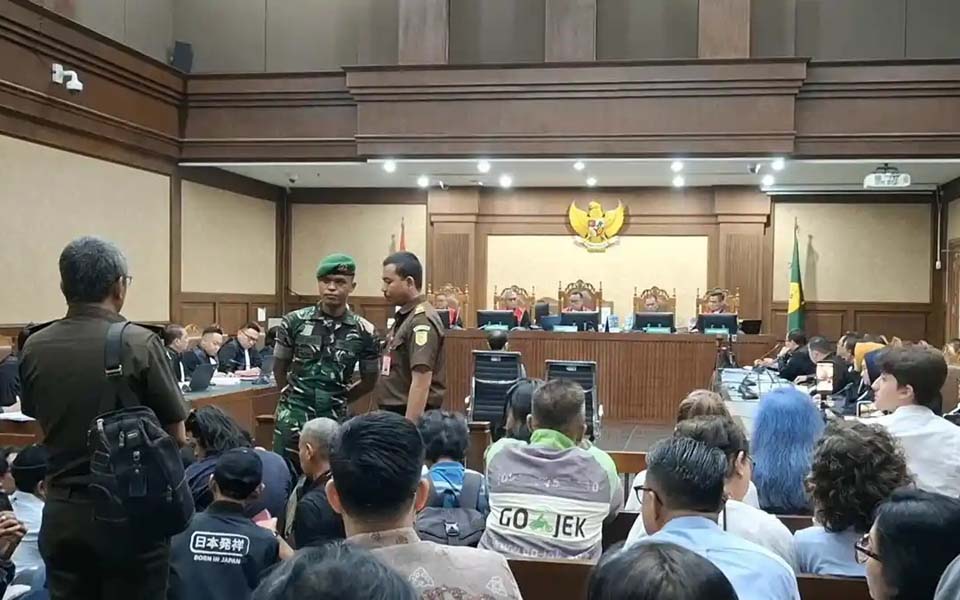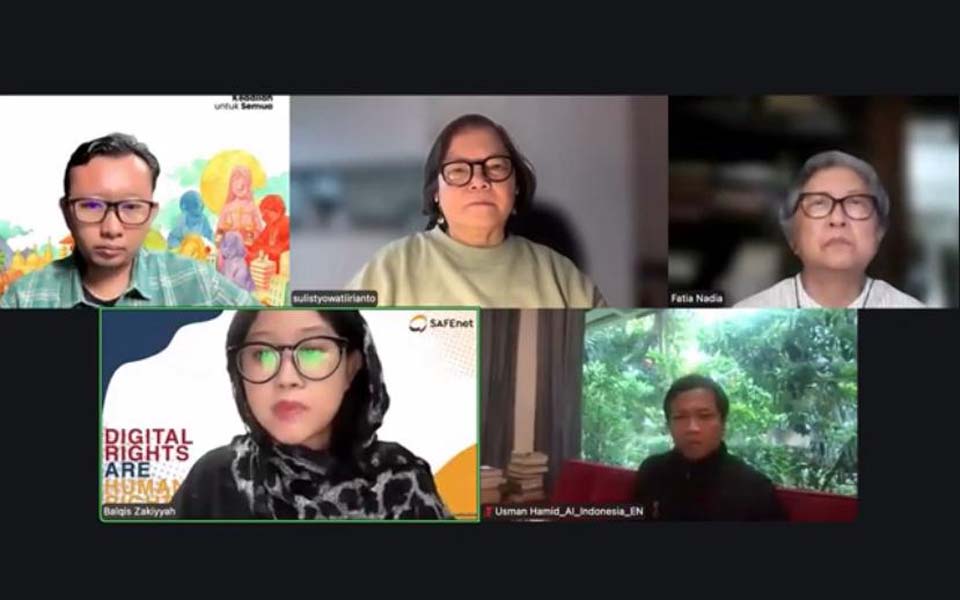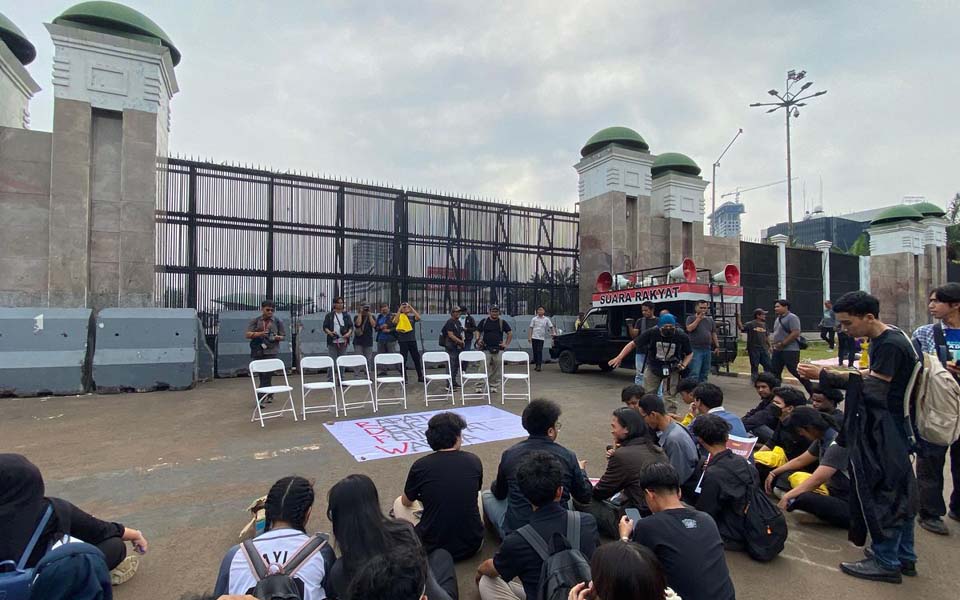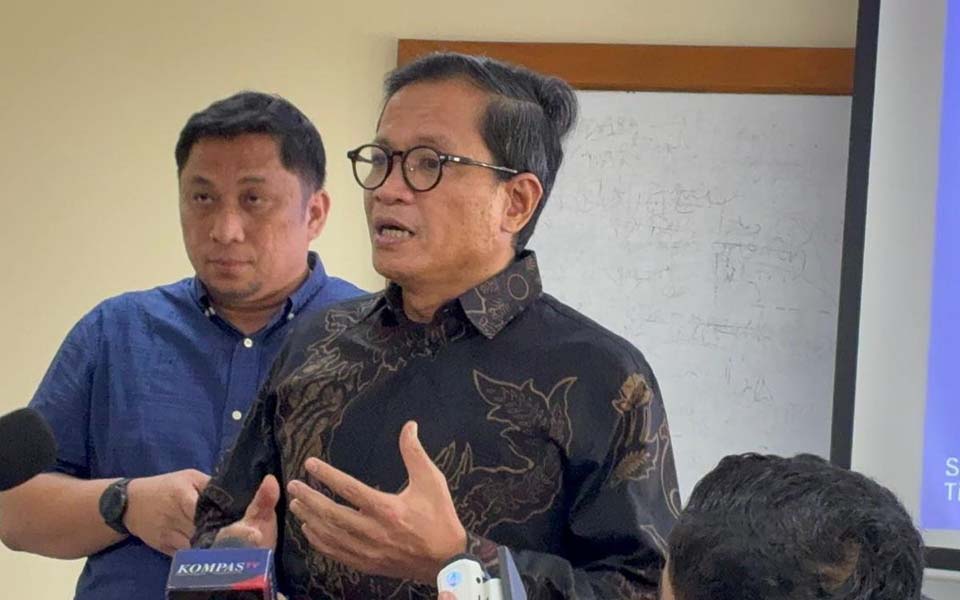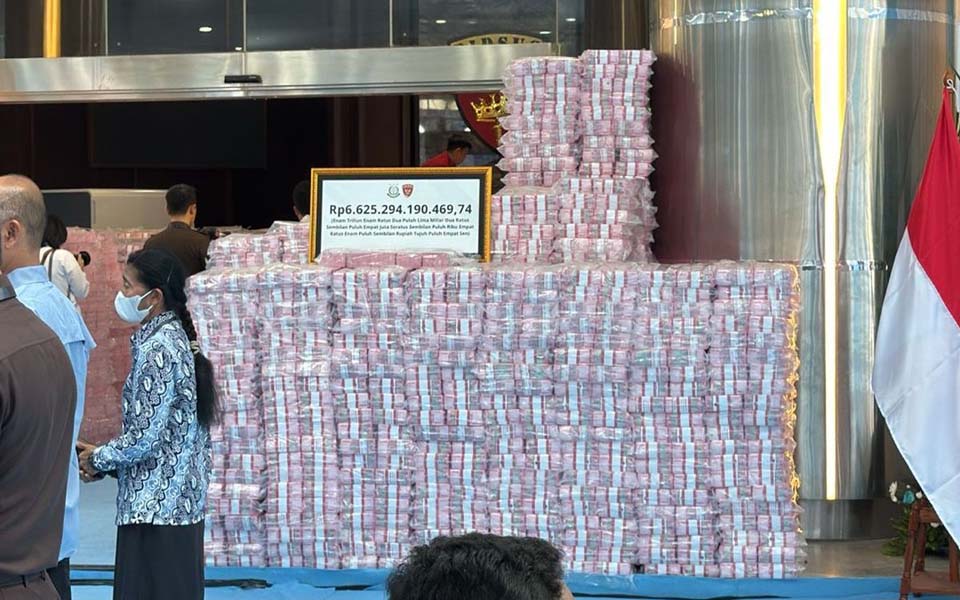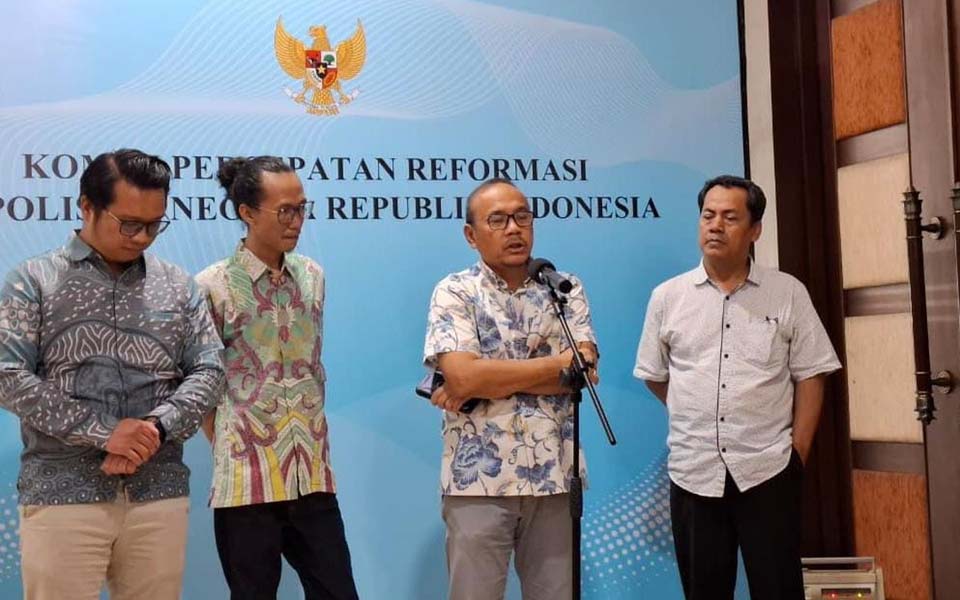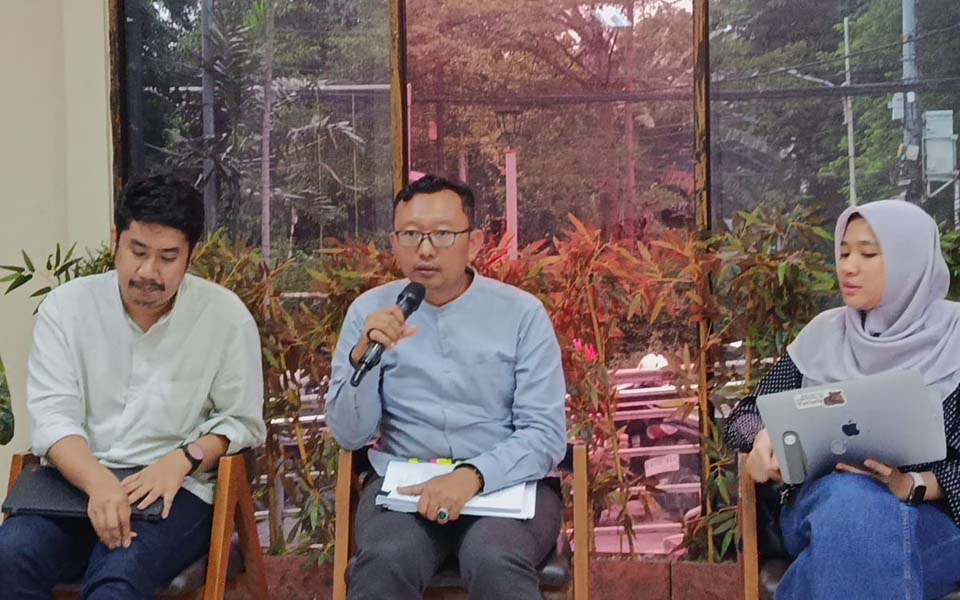Jakarta – Deputy police chief General Commissioner Adang Daradjatun has acknowledged that it may take 15-25 years for the Indonesian police to be able overcome its culture of violence and this depends on developing factors which support and impede the process. Nevertheless, this cannot become an obstacle to the independence of the police.
Daradjatun was responding to the results of research conducted by the Indonesian Human Rights Monitor (Imparsial) which were made public on Saturday June 4. The research revealed that the separation of the police from the TNI1 (armed forces) is one of the dominant factors in violence committed by police against the public (Kompas, 4/6).
“The police will only be able to overcome the problem of brutality and the culture of violence within the institution after 15-25 years. This depends on factors that support and impede the process, which are developing within the police force itself. But this cannot become a reason to impede the independence of police”, said Daradjatun at his house in Cipete Raya South Jakarta on Sunday.
Titled “A Criticism of the Brutal Practices by Police During the Period of Transition”, Imparsial’s research found the factors causing police brutality include an erroneous educational doctrine and a militaristic culture left over from the past.
Daradjatun disagreed with this conclusion. According to Daradjatun, since 1999 the police’s doctrine has changed from the doctrine of Tribarata and Catur Prasetya which were put in place in 1946. “Compare the contents of Tribarata and Catur Prasetya 1946 and after 1999. [The mandate of] serving the state has became one of serving the public and law. Isn’t it clear that there has been a change in the [police’s] paradigm?” said the former head of the Police Reform Team.
Daradjatun admitted there is a still a militaristic culture left over from the past. “But we believe that within a short time the Indonesian police will be able to overcome this problem because the police’s external environment has already changed significantly, including the increasing strength of the People’s Representative Assembly’s (DPR) control over the police”, he said.
With regard to the issue on the Mobile Brigade (Brimob), Daradjatun said “If [you] view Brimob as a strike unit, this is inaccurate. [More] accurately [they are a] backup unit. Brimob takes action after there has been an assessment that a conflict has escalated to a dangerous level”.
Must be abandoned
Responding to the results of Imparsial’s research, the executive director of the private think tank Propatria, T Hari Prihatono, and a researcher from the Research Institute for Democracy and Peace (the Ridep Institute), Moch Nurhasim, said on Saturday that aside from legislative problems one of the basic issues is getting rid of the police’s militaristic culture in order to build a real civilian police force.
One of the reasons for the persistence of a strong militaristic culture within the police they said, is Brimob, which is armed like the military. It is time therefore for Brimob’s role to be reevaluated to see whether or not its powers should be reduced or it be separated from the police.
Hari Prihatono, who together with Propatria has made a study of the reform of the security forces (including the police), believes that it is essential to clean up legislation such as amendments to MPR Decree VI and VII 2000 as well as Law Number 2/2002 on the Indonesian Police in order to limit the police’s duties, functions and powers.
“In relation to this, is it enough for a MPR decree and the law on the police to authorise to the police to carry lethal arms? Who controls this power? Government policy on the police must come out of the department which deals with domestic security polices”, he said.
Prihatono said however that what is more important is cleaning up the doctrine, culture and behaviour of police officers along fixing the curriculum for police recruit training. (BUR/WIN)
Notes:
1. For years, the police were part of the TNI and were subordinate to the military. The police separated from the TNI after the enactment of Law Number 2/2002 on Indonesian Police affairs. Under the law, a police commander who is directly accountable to the president heads the police.
[Translated by James Balowski.]





